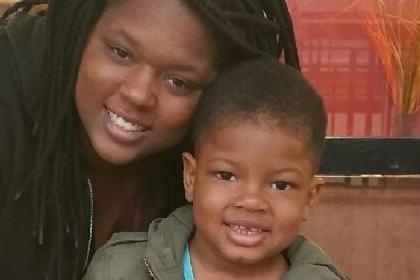
(2-22-16) Maryland Judge Hayward West should be congratulated on his decision to place Romechia Simms, the Maryland mother found pushing her dead child on a swing last year, in treatment for her schizophrenia rather than sending her to jail.
Simms had stopped taking her medication when she became psychotic, began hearing voices, and took Ji’Aire Lee to a park where she pushed him in a bucket swing for more than 40 hours, including in the rain. The 3 year-old died of hypothermia and dehydration.
Public defender Elizabeth Connell said the agreement to keep Simms in community treatment represented a “progressive way of thinking” and was a “testament to the progress of science and society.” I agree.
Charles County State’s Attorney Tony Covington wasn’t pleased, but said he didn’t have much choice after three psychologists found Simms not criminally responsible for her actions.





